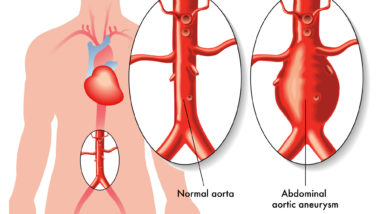Top Class Actions’s website and social media posts use affiliate links. If you make a purchase using such links, we may receive a commission, but it will not result in any additional charges to you. Please review our Affiliate Link Disclosure for more information.

The FDA recently announced that a class of common antibiotics has been linked to life-threatening side effects.
Fluoroquinolone antibiotics are used to treat many common infections, and over 20 million fluoroquinolone prescriptions are written each year. They include drugs like the following:
- Moxifloxacin (Avelox)
- Ciprofloxacin (Cipro)
- Levofloxacin (Levaquin)
- Gemifloxacin (Factive)
- Norfloxacin (Noroxin)
- Ofloxacin (Floxin)
Reportedly, people taking drugs like these are two to three times more likely to experiencing damage to their aorta than those who take other antibiotics. Reportedly, fluoroquinolone antibiotics can be administered orally or via injection, and patients who take the drugs either way can be susceptible to the serious side effects.
Unfortunately, fluoroquinolone antibiotics may have other serious side effects besides aortic rupture. Some patients report serious cases of psychiatric episodes, confusion, and anxiety linked to fluoroquinolone use.
Fluoroquinolone Aortic Rupture Side Effect
Fluoroquinolone antibiotics are reportedly linked to aortic dissection or rupture. In these conditions, the walls of the largest artery in the body can be weakened, bulge, and break.
The walls of the aorta are made up of multiple layers. In the case of an aortic dissection, one or more of the layers breaks, causing the wall to bulge. In the case of an aortic aneurysm, the whole wall ruptures, causing internal bleeding.
Aortic rupture conditions can be life-threatening. The FDA advises “all patients to seek immediate medical treatment for any symptoms associated with aortic aneurysm,” and recommends that doctors stop treatment with the medication if a patient shows side effects that suggest they could be at greater risk for aortic aneurysm or dissection.
According to previous research, the antibiotics were linked to the breakdown of collagen, which was reported to cause tendons to break. Studies suggest that the collagen breakdown that affected tendons may also affect aortic walls, because aortic walls contain collagen.
As a result of this risk, the FDA has required that a warning for side effects like aortic rupture be included on the boxes for all fluoroquinolone antibiotics. However, ScienceDaily says that despite these dangers, doctors are still prescribing fluoroquinolone antibiotics.
The University of Michigan reportedly conducted a study on the number of people who were prescribed fluoroquinolone antibiotics. The research reported that though there is an effort to reduce the number of fluoroquinolone antibiotics prescribed, hospitals that are “actively trying to reduce inpatient fluoroquinolone use were twice as likely to discharge patients with a new prescription for one of them.”
This may be because fluoroquinolone antibiotics are “easy to use,” as Dr. Valerie Vaughn described them to ScienceDaily. Vaughn is the lead author of the research into fluoroquinolone prescriptions.
Vaughn says that this research suggests that the medical community should focus not only on avoiding fluoroquinolone antibiotics when a patient is staying in the hospital but that medical professionals should also focus on “prescriptions that we send patients home with. Discharge prescribing is a big loophole.”
Join a Fluoroquinolone Aortic Aneurysm, Aortic Dissection Lawsuit Investigation
If you or a loved one were prescribed Fluoroquinolones such as Cipro, Levaquin or Avelox and were later diagnosed with an aortic dissection or aortic aneurysm, you may have a legal claim. Fill out the form on this page now for a FREE case evaluation or call 1-(855)-JONES-LAW (1-855-566-3752).
ATTORNEY ADVERTISING
Top Class Actions is a Proud Member of the American Bar Association
LEGAL INFORMATION IS NOT LEGAL ADVICE
Top Class Actions Legal Statement
©2008 – 2024 Top Class Actions® LLC
Various Trademarks held by their respective owners
This website is not intended for viewing or usage by European Union citizens.
Get Help – It’s Free
Join a Fluoroquinolone Aortic Aneurysm, Aortic Dissection Lawsuit Investigation
If you qualify, an attorney will contact you to discuss the details of your potential case at no charge to you.
PLEASE NOTE: If you want to participate in this investigation, it is imperative that you reply to the law firm if they call or email you. Failing to do so may result in you not getting signed up as a client or getting you dropped as a client.
E-mail any problems with this form to:
Questions@TopClassActions.com.
Oops! We could not locate your form.












